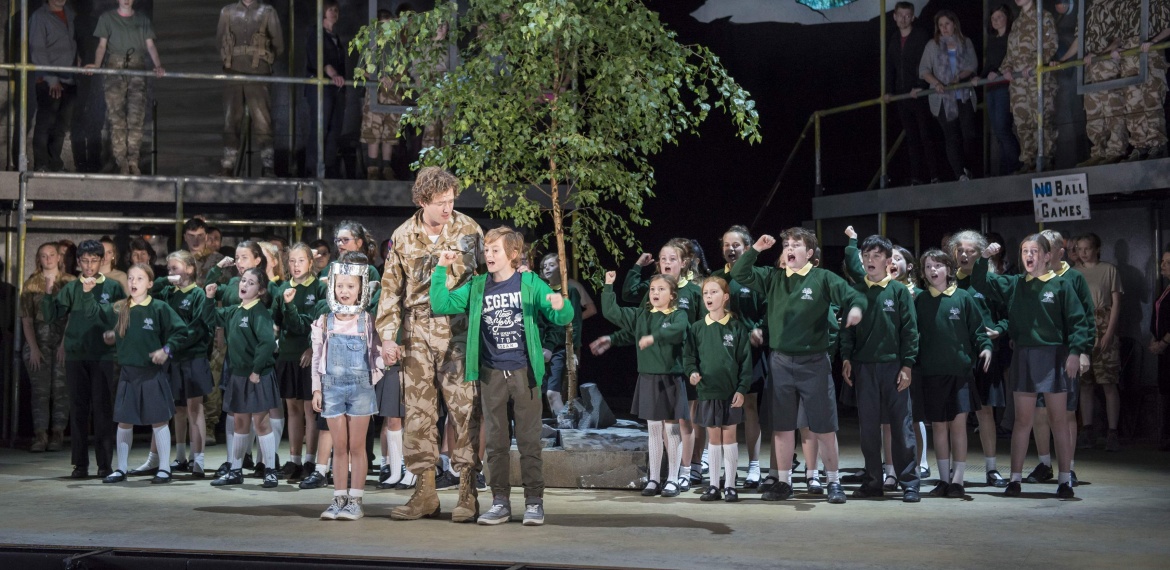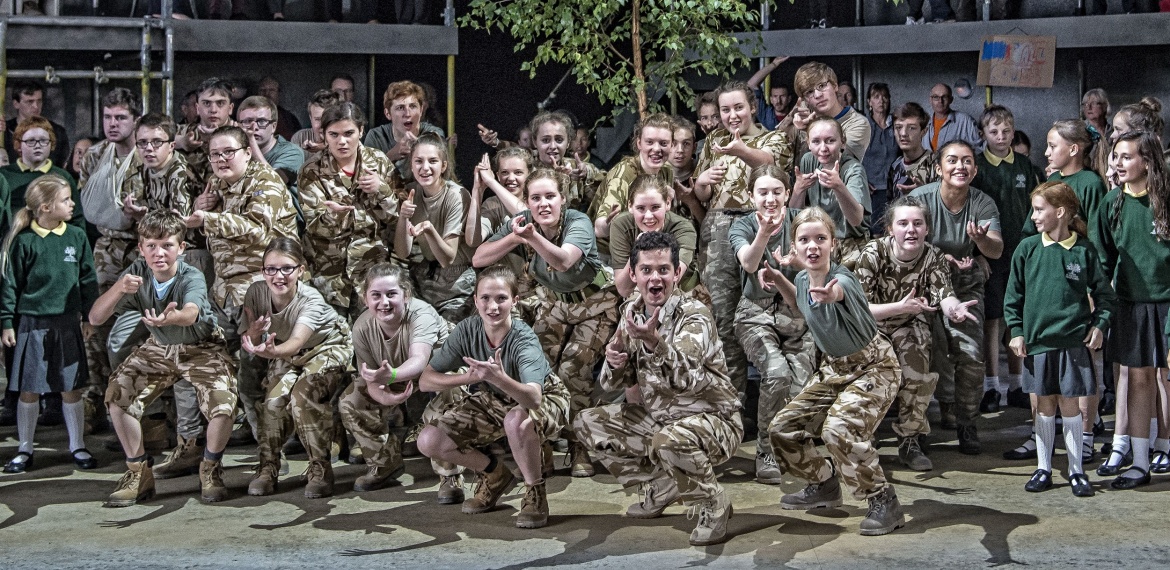Garsington Opera at Wormsley, Sunday 30 July 2017
Community operas have a very different dynamic from conventional stagings and Roxanna Panufnik makes the most of these in her new work Silver Birch which was given three performances at Wormsley last weekend with a cast of 180. The use of large choral forces was much in evidence but they are split across three convincingly naturalistic groups. While the narrative line brings together the realities of the trauma of war – an excellent libretto from Jessica Duchen – it moves seamlessly between Siegried Sassoon and the war in Iraq. Jack’s story is reflected in the massed reactions of the general public, the army itself and a large body of school children.
Jessica Duchen does not flinch from the painful realities of the effects of war. Jack is genuinely traumatised by his time under fire, and though to the crowd back home he is a hero, his emotional life – fragile at the best of times – is destroyed. We are given a bleak insight into his family relationships and the destructive power of his callous father. One of the few dubious moments in the whole evening is the attempted reconciliation of father and son at the end.
Much of the evening is given over to choral scenes which are staged with exemplary clarity and discipline by Karen Gillingham. While individual characters emerge from the mass across the wide stage there is never any point at which the focus of attention is lost. The energy the younger members bring to the stage is extraordinary – whether they are the soldiers PE routines or the primary children singing Soldier, Soldier.
The opening scene reminded me of the start of Porgy and Bess. A real community of real people – and lots of them – which we suddenly realise is growing and developing before our eyes. If the narrative focusses down eventually onto Jack – a splendid characterisation from Sam Furness and very moving – it is the seeming lack of understanding from the community as a whole which impinges. This is never more true than in the school scene where his brother Leo gets into trouble, reading Jack’s copy of Siegfried Sassoon, because of the traumatic disruption Jack’s joining the army has caused. It is not just soldiers who are hurt by war but all of us.
Roxanna Panufnik writes bold passionate choruses, often easily lyrical but never simplistic or overtly popular. While easy to take in on a first hearing, there is more than enough here to make me wish there were a way of adapting the whole for different forces. This was a magnificent undertaking for all concerned – not least Douglas Boyd and his extended orchestra – and let us hope something more long lasting will come out of it.


